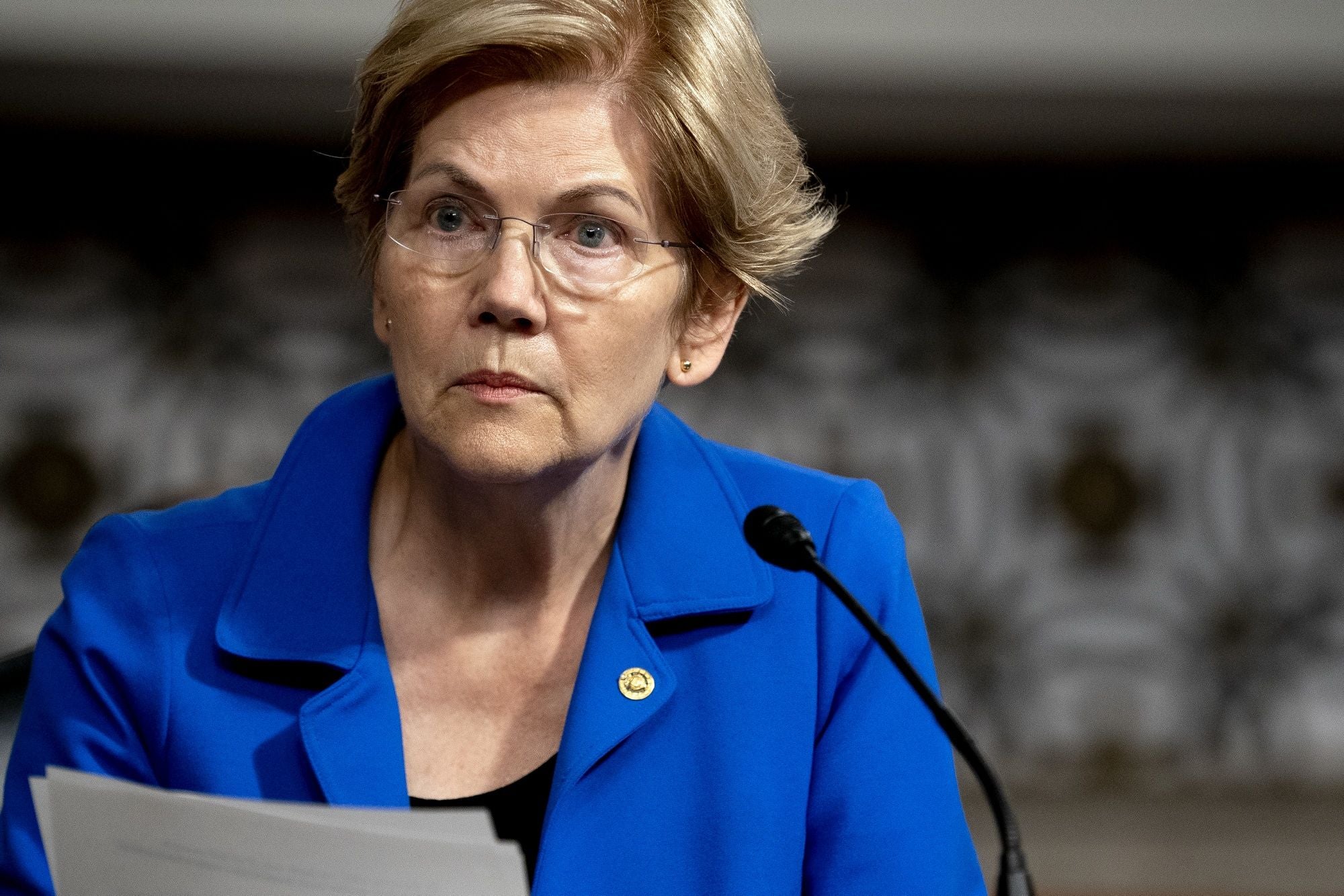By Susannah Sudborough
On Sunday, Sen. Elizabeth Warren challenged big players, both political and corporate.
The Massachusetts senator made headlines after she sent a letter to Dr. Robyn Denholm, who chairs the Tesla Board of Directors, questioning whether Elon Musk is still fit to run the electric car company while also serving as CEO of Twitter.
Earlier that day, Warren joined WBZ political reporter Jon Keller on his weekly interview show, Keller @ Large, during which she skewered the MBTA’s response to safety concerns and challenged Massachusetts Rep. Seth Moulton’s approach to Ukraine.
Here’s what she had to say:
Warren said that since Musk became the head of Twitter, his choices have led to conflicts of interest and misuse of Tesla’s assets, such as him reportedly asking several top Tesla employees to spend time working at Twitter.
The senator also said Musk now has the opportunity to give Tesla free advertising via Twitter, and to use Tesla ad money to bolster Twitter if the company begins failing financially.
“It remains unclear whether the Tesla Board…is adequately governing the company, or if it has established clear rules and policies to address the risks to Tesla posed by Mr. Musk’s dual roles,” she wrote.
Warren asked Tesla’s board to respond to a dozen questions laid out in the letter on what, if any, safeguards Musk has created to protect the independence of Twitter and Tesla by Jan. 3.
When asked by Keller whether she was satisfied with changes being made at the MBTA in the wake of the Federal Transportation Administration’s (FTA) review of the transit authority and her own Senate hearing on its safety issues, Warren said no, and that change was needed urgently.
Even though the T has come up with solutions to the problems identified by the FTA, she said, the FTA has determined that about half of those solutions are inadequate.
“So we have a problem that’s not getting better,” she said.
When asked where the main problem lies, Warren said management is to blame.
“There’s been a money problem for a long time. But you can back up a pickup load full of money and it won’t fix problems of transparency. It won’t fix problems of prioritizing safety. It won’t fix problems of reaching out and building a workforce that can actually get the job done,” she said.
On the influence of crypto companies in politics, Warren said she doesn’t want any more money in politics, especially from corporate PACs.
But more broadly, Warren said, the government needs to further regulate cryptocurrency.
“I worry a lot about crypto issues generally. It is the preferred tool for drug dealers, for human traffickers, for robo-gangs — the ransomware gangs, and for North Korea and Iran,” she said.
That’s why, Warren said, she put out an anti-money laundering bill this week that would put the same kinds of constraints on crypto exchanges that are already in place for banks, brokerage houses, and Western Union.
Having recently voted against lifting the COVID-19 vaccine mandate for members of the military, Warren was asked what she thought about politicians like Boston Mayor Michelle Wu and Gov. Charlie Baker hesitating to reinstate vaccine and mask mandates.
“I think this is about trying to follow the science. That’s what we’ve all tried to do. Mayors and governors and senators, we are not at the CDC. We are not the people who are epidemiologists. We get the best information we can and then we make decisions based on that. And conditions have changed,” she said.
In the meantime, Warren said, those concerned about COVID-19, the flu, and other illnesses should get vaccinated.
“If the CDC says it’s time to put masks on, I’ll put it back on,” she said.
Contrasting Massachusetts 6th District Rep. Seth Moulton’s recent comments that the United States should give Ukraine whatever weapons it wants, Warren adopted a more cautious approach.
“I agree that we should give assistance to Ukraine. I’ve been a very strong supporter. But we always have to think about the escalation of the war. And so giving more help on the defensive side…is different from giving offensive weapons that could be deployed in Russia. It’s a line we’ve drawn so far at the Department of Defense, and I support them in that,” she said.
When asked about the difference between these two types of aid, Warren said it’s important to consider that Russia is a nuclear power.
“We do not want to be a party to escalating the conflict between Russia and the United States. We want to support Ukraine for Ukraine’s independence. We are there to try to help Ukraine rebuild. We’re there to try to help them defend against the onslaught, and we’re even there to help them fight to regain the territory that Russia has taken from them. But the question of using American weapons into Russia would be a different line,” she said.
Still, Warren disagreed with some even more cautious analysts who do not think the U.S. should help Ukraine take back Crimea, which was invaded and annexed by Russia at the behest of Russian President Vladimir Putin in 2014.
“It’s part of Ukraine, and I think Ukraine has a right to its territorial integrity,” she said.
Stay up to date on all the latest news from Boston.com
Be civil. Be kind.
©2022 Boston Globe Media Partners, LLC
Stay up to date with everything Boston. Receive the latest news and breaking updates, straight from our newsroom to your inbox.


